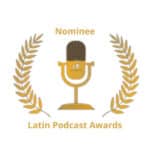Cherelle Parker is officially the new mayor of Philadelphia. In her first address, she referenced her 100-Day Action Plan, which encompasses the administration’s vision for a safer, cleaner, and greener city, along with education and economic opportunities for all.
Parker, the first African American woman to hold the office in the city’s history, delivered her inaugural address at the city’s 195th inauguration ceremony at The Met on North Broad Street. She assured that within the first 100 days, her administration would announce specific plans to increase the number of Philadelphia police officers on the streets, focusing on community surveillance citywide.
Click Here for More Information
“We must rebuild trust between the police and the communities they serve. Our officers must be guardians, not warriors. We will declare a Public Safety Emergency and swiftly bring all available resources to neighborhoods grappling with the scourges of crime, gun violence, drugs, and addiction”
Regarding a cleaner and greener city, the mayor outlined a new approach to address quality of life issues such as illegal dumping, waste and graffiti cleanup, pothole repair, and the removal of abandoned vehicles, starting with a focus on the most affected neighborhoods.
“Our new Clean and Green Initiatives will expand a successful neighborhood commercial corridor cleaning program, PHL Taking Care of Business (PHL TCB), bringing together government, community, and businesses to collaborate on reducing waste, increasing recycling, and working toward a more sustainable future.”
Housing was also a top priority for Parker, who was accompanied by her son Langston, family, friends, local and state leaders, as well as supportive neighbors. “We will create a ‘One-Stop Opportunity’ for residents to access city-managed home improvement programs. We will develop an ‘Affordable Luxury’ vision: homes with high-end fixtures for homeowners and renters, preserving, building, and providing more support to small property owners.”

On education, Parker specified that a comprehensive strategy would be developed to provide meaningful extracurricular programs and job opportunities for students outside regular school hours. She also shared plans for the modernization of school buildings, stating, “We will work closely with the school district on its own plan for educational facilities.”
“Our children have the same right to come to school and learn in clean, modern school buildings with state-of-the-art facilities and equipment as anyone else anywhere in our Commonwealth.”
Economic Opportunities for All
Within the first 100 days, Parker also emphasized economic opportunities for all residents of Philadelphia and highlighted the “PHL Open for Business” initiative, aiming to eliminate “the bureaucracy that makes it difficult to do business in the city by requiring each department to submit to my office a list of unnecessary permits and regulations.”
“Philadelphia is open for business, and that’s why we will continue to eliminate college degree requirements for many jobs in the city when unnecessary, and we will publicize current job opportunities in local government, opening the door for more residents to access well-paying jobs”
With this, Parker seeks to set the residents of Philadelphia on the path to self-sufficiency. “We will designate a team focused on the success of minority businesses and will host business roundtables to bring together local and business leaders interested in the economic success of our city, leveraging intellectual resources to create real opportunities for everyone.”
Lee también:Cherelle Parker presentó su plan de acción de 100 días
Roundtables with Focus
The first woman to become mayor of Philadelphia also specified that roundtables would be created with a focus on business, religious, and intergovernmental efforts, with missions to solicit and develop better ideas on how the city council can serve the different electoral districts and needs of the diverse city.
“Let me be clear again. These roundtables will be ‘active vehicles’ for formulating and implementing new policies in this city. We want everyone’s ideas on how to improve Philadelphia, and we will be a government that truly listens to the people.”

Parker reiterated her promise to close the gap between the haves and the have-nots and confront the challenges it faces: a quarter of the citizens live in poverty; armed violence and guns on the streets; and neighborhoods grappling with decay, illegal trash dumps, and nuisances that degrade the quality of life for residents.
“We have no more time for what I like to call expert problem articulators; instead, we will focus on developing and implementing solutions to address our challenges and solve them for the people of our city. You deserve to see your tax dollars at work in your neighborhood, in a tangible way that we can all see, touch, and feel.”
A Tenacious Woman
Born and raised in West Oak Lane by her grandparents James and Dorothy, Parker, a tenacious woman with an unparalleled political trajectory, has achieved her dreams thanks to the unconditional love of her family, the support of her community, and a belief in the power of education.
“I want to thank my community, the residents of Philadelphia for giving me the opportunity to earn their support and for believing in me and my vision for the future of our city.”
Parker’s political journey began at the age of 17 when she won a high school oratory contest. The prize was an internship with City Councilwoman Marian Tasco, with whom she ended up working for 15 years.

Later, in 2005, she became the youngest African American woman elected to the Pennsylvania House of Representatives, representing Northeast Philadelphia for 10 years. She worked to increase funding for the city’s public schools, limit property tax increases, combat payday lenders, and strengthen cases for victims of sexual violence.
Click Here for More Information
Her steps continued in the city council, assuming the position of the 9th District Councilmember, representing neighborhoods in Northwest and Northeast Philadelphia, including Mount Airy, West Oak Lane, East Oak Lane, Olney, Lawncrest, Lawndale, Burholme, and Oxford Circle.
Parker will continue her years-long fight to make Philadelphia a safer, cleaner, and greener city with education and economic opportunities for all, but this time as the mayor.
There hasn’t been a Republican mayor in Philadelphia since 1952 when Bernard “Barney” Samuel had a limited term thanks to the approval of the city’s Home Rule Charter, which established a two-term limit.





































 Noticias Newswire
Noticias Newswire








